|
Home
About
Us
Bookstore
Links
Blog
Archive
Books
Cinema
Fine Arts
Horror
Media & Copyright
Music
Public Square
Television
Theater
War & Peace
Affilates
Horror Film Aesthetics
Horror Film Festivals
Horror Film Reviews
Tabloid Witch Awards
Weekly Universe
Archives
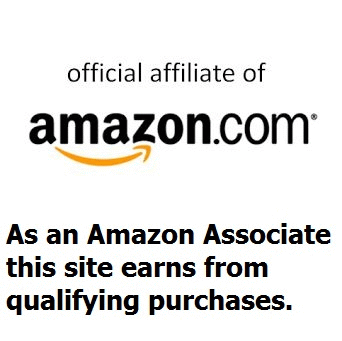

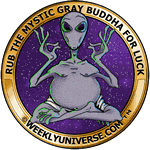
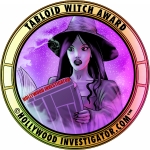
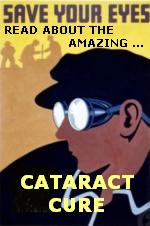

|
BATTLE'S POISON
CLOUD: NEW FILM EXAMINES AGENT ORANGE LEGACY IN VIETNAM
by Thomas M. Sipos, Managing Editor.
[February 7, 2004]
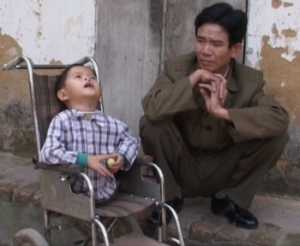 [HollywoodInvestigator.com] Agent
Orange has not only stricken returning American GIs with cancer, it's
left Vietnam with a legacy of gruesome birth defects that spans generations
-- affecting some million Vietnamese, including 150,000 children! [HollywoodInvestigator.com] Agent
Orange has not only stricken returning American GIs with cancer, it's
left Vietnam with a legacy of gruesome birth defects that spans generations
-- affecting some million Vietnamese, including 150,000 children!
That's the shocking accusation
of Battle's
Poison Cloud, a documentary by Cecile Trijssenaar of Tambutifilms.
During
the Vietnam War, the US military sprayed Vietnam's jungles with dioxin
(aka Agent
Orange), a defoliant meant to deprive the Viet Cong guerrillas of their
leafy cover. US veterans returned to suffer the effects of spraying Agent
Orange, for which the US
govt is compensating them. But Agent
Orange also seeped into Vietnam's land and water, spawning an abnormally
high incidence of birth defects in Vietnam, according to Battle's
Poison Cloud.
Amazingly,
despite its sympathetic portrayal, Vietnam's Communist officials were not
entirely cooperative in the making of the film. In an exclusive interview with the Hollywood Investigator, filmmaker Cecile Trijssenaar
says: "Access to film was problematic. I applied for a work visa,
but didn't get a response from the government before it was time to leave
[for Vietnam]. Once in country, we went to the authorities to gain
permission, but our timing was during Tet (the new year), and most officials
were off on holiday.
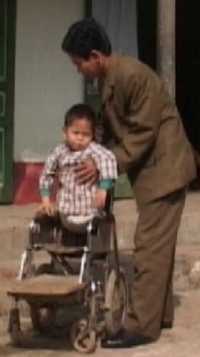 While
Trijssenaar did not get all the access she wanted, she interviewed the
director of the Vietnamese Red Cross's Agent Orange Fund, Prof. Le Cao
Dia, M.D., and, outside of Vietnam, she interviewed Dr. Wayne Dwernychuk
of Canada's Hatfield & Associates, and Dr. Arnold Schecter, a professor
at the University of Texas. While
Trijssenaar did not get all the access she wanted, she interviewed the
director of the Vietnamese Red Cross's Agent Orange Fund, Prof. Le Cao
Dia, M.D., and, outside of Vietnam, she interviewed Dr. Wayne Dwernychuk
of Canada's Hatfield & Associates, and Dr. Arnold Schecter, a professor
at the University of Texas.
All these
experts support the thesis behind Battle's
Poison Cloud -- that Agent Orange caused the high proportion
of Vietnamese birth defects that appears even in the grandchildren of VC
veterans. The film is advocacy journalism; no opposing experts are
interviewed, though the film admits that the U.S. government denies that
it caused the birth defects. Indeed, pressuring the U.S. govt to
take financial responsibility for dioxin's medical and environmental damage
is one of the film's goals.
Whatever
caused the deformities afflicting so many Vietnamese, the film is filled
with their horrific images, such as those in the "Friendship Village,"
an internationally-financed rehabilitation center. But Trijssenaar
says the children in her film are not worst cases. "The children
in the Friendship Village are helped because of their chances of making
some success, and their deformities are relatively small. No way
did I focus on the worst cases. There are some absolutely horrific
deformities which I couldn't put in, as I knew that the film would not
have a chance of broadcast.
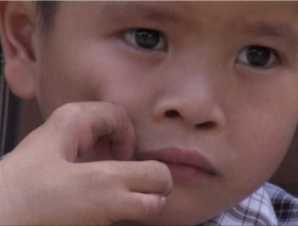
|

|
"There
are cases of families giving birth to four children without eyes, and other
sibling groups with serious and gross deformities. Many of the children
are in villages and supported by their families and only known to the local
authorities. In the Tu Du hospital there are about 70 children who
will spend the rest of their lives there because their problems need constant
medical attention and the families could not face bringing them home."
Battle's
Poison Cloud is also an example of the low-budget filmmaking
made possible by digital video equipment. "The budget was very low,"
says Trijssenaar, "as I originally made it for a news program who only
paid £1500 for a 10 minute version. Post-production on the
documentary was the most expensive [element]. I have not tallied
up all the amounts -- funded it myself and don't really want to know! --
but I would say that it's in the region of £15,000, roughly $20,000.
Shot on a PD 150, which is a DV cam, and finished on digi-beta.

"I spent
a month in Vietnam, and traveled to Hanoi, Ho Chi Min, and the DMZ. I shot the film in February 2002, and spent most of the year making several
versions of it. The present version was completed in Dec 2002."
Battle's
Poison Cloud reveals the curious factoid that what Americans
call the Vietnam War is known in Vietnam as the American War. The
war has also been called a civil war by 1960s antiwar activists, because
South Vietnamese fought North Vietnamese, but the civil war aspects seem
to have been de-emphasized by the Communist Vietnamese government.
"The ex-Viet
Cong refer to it as the American War," says Trijssenaar, "as the US was
their enemy at that time, and as I understand it, that's the way it's referred
to in their history. Always better to have an outside enemy than
to know that the country was fighting itself.
"[Vietnam's]
separation into North and South is artificial (introduced by the French,
I think), and not recognized by the present day government. Vietnam
prides itself on its integration, and they are an ethnically pure race. At the moment if there is any problem it is with the ethnic minority mountain
people. If there is any separation it is economic and moral. It is because of the present day issues of Agent
Orange that people are now looking back to the US/Vietnam war."

Asked
about current attitudes toward Americans, the war, and the formerly South
Vietnamese, Trijssenaar says: "The Vietnamese are a very practical people. They do not harbor back to the history of their country, they just deal
with present day issues."
That claim
is affirmed by Suel Jones, a U.S. veteran of the Vietnam War. "We
came across Suel Jones by accident," says Trijssenaar,
"which added another dimension to the story." In the film,
Jones speaks warmly of the Vietnamese people, saying they harbor no ill
will toward Americans over the past war. Jones breaks bread with
his Vietnamese hosts in the Friendship Village.
Despite
the boat
people exodus following the war, Trijssenaar
says: "I am not sure if there was much repression after the war
in the South. It was long ago, and people are reluctant to speak
about it. Youngsters today are unaware there was even a war!"
* Distribution
Battle's
Poison Cloud has been picked up for international distribution
by Higrade, a French company. It was broadcast over ABC Australia
on Oct. 25, 2002. "It has been shown in three festivals, says Trijssenaar. "It won Best Investigative Journalism Award at the Moscow Law and
Society Film Festival, and the Grand Jury Prize at the New York International
Independent Film & Video Festival." It was also screened at a
festival in Vegas, and at universities.
Trijssenaar
concludes: "In the UK we're trying to get the government to support
the Stockholm Agreement, which calls for governments that conduct wars
on foreign soils to be responsible for their actions specifically to chemicals
and armaments in Vietnam, Cambodia, and Laos. I am also trying to
set up a petition to pressure on the U.S. to firstly acknowledge its responsibility,
and secondly to offer some sort of compensation.
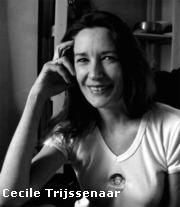 Of herself,
Cecile Trijssenaar says: "I was born in Zimbabwe and completed Higher Diploma
in Film & TV Studies in South Africa. I have a B.A in Religious
Studies from The University of South Africa, and a Masters degree in Medical
Anthropology from the University of London's School of Oriental and African
Studies. Of herself,
Cecile Trijssenaar says: "I was born in Zimbabwe and completed Higher Diploma
in Film & TV Studies in South Africa. I have a B.A in Religious
Studies from The University of South Africa, and a Masters degree in Medical
Anthropology from the University of London's School of Oriental and African
Studies.
"I've been
an editor for most of my film/video career, branching out into independent
productions a couple of years ago. My first programme was My
Father's Father's Land, a short docu on the
eviction of Bushmen from the Central Kalahari Game Reserve. I am
planning to make this into a full length documentary. Other films
include Tears on the Jewel about AIDS and diamonds, and The Universal
Religion about Caodaism, a Vietnamese religion. I also did a short on the repatriation of the Kurds at the end of the Gulf
War.
"I'm presently
working on a programme called Pursuit of Perfection that looks into medical science's desire to create the perfect human being. It runs parallel stories between the turn of the last two centuries, scientists'
desire being the same; except in the first it was 'survival of the fittest'
and the eugenics debate, and this century it's the manipulation of genes. My question: is it going the same way? Will we be re-experiencing
the horrors of the past, namely the holocaust?"
Cecile Trijssenaar
currently lives in the United Kingdom. |
Copyright 2004 by HollywoodInvestigator.com
 |
